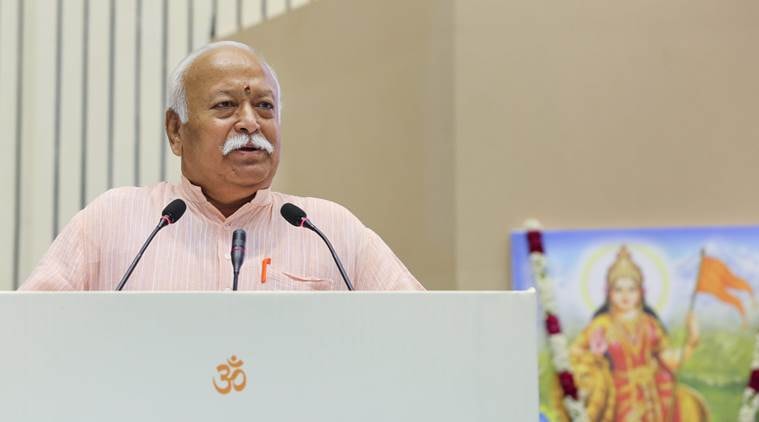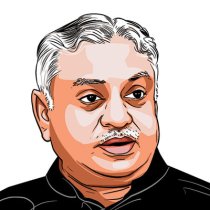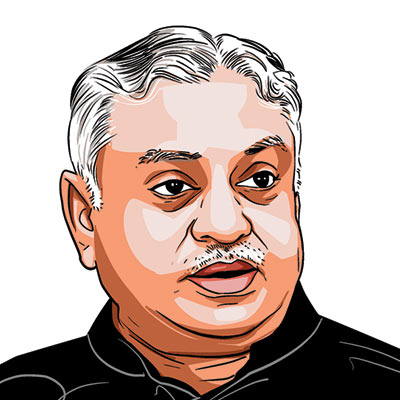RSS doesn’t need Glasnost
Only those unaware of the Sangh’s open, inclusive culture were surprised by the candour with which Mohan Bhagwat dealt with difficult questions.

RSS chief Mohan Bhagwat. (PTI/File)
Mohan Bhagwat’s lecture series in Delhi last month triggered much dialogue and debate. Many welcomed the outreach, some expressed doubts on the sincerity of the ideas, and others wondered if they would permeate to the ground. But for the most part, these lectures were perceived as ground-breaking because of the candour with which difficult questions were addressed.
However, for the Sangh, there is nothing new about this candour. Open discussion on a spectrum of ideas is an intrinsic part of our lives. All national office bearers tour the country extensively and engage with diverse sections of society. Vested interests have been portraying the Sangh as a closed organisation because it suits their agenda. Those who have bought into this propaganda against the Sangh naturally saw the lectures as a departure from the norm and in many quarters it was termed a “Glasnost” moment.
Glasnost and Perestroika are Russian words denoting open dialogue on social and economic issues. They gained currency before the downfall of Soviet Union’s communist regime because they articulated freedom from the oppressive and closed regime.
Semitic traditions believe that ideation is the domain of the elite. For the rest, complete submission to those ideas is mandated and any diversion is “blasphemy”. The Church constructed this prison of thoughts, and thinkers such as Bruno and Galileo were persecuted because they contradicted its views. The communists borrowed from this playbook. In communist Russia and China, people have been routinely persecuted for even questioning the ruling ideology. In these countries, Glasnost was the emergence of a new dawn.
Oppressive and exclusive ideologies are antithetical to the culture of Bharat. Our history has been witness to great philosophers, saints and social reformers such as Swami Dayanand Saraswati, Ramakrishna Paramhamsa, Swami Vivekananda, Narayana Guru and many others. It is for this reason that Sister Nivedita, the daughter of a Christian priest from Europe and Swami Vivekananda’s disciple, wrote that had Bruno been in India, he would not have been burnt alive. The foundation of the Sangh philosophy is rooted in Bharatiya thought.
I was born into a Sangh family. My father, at the age of 18 in 1941, took the vow to dedicate his life to the Sangh. Today, at 95, he continues to live out that vow. Since childhood, I have never experienced any hostility towards Muslims and Christians in shakhas. Only anti-national elements are robustly opposed (not hated). One day, in 1971, when I was conducting a shakha in Nagpur, about a dozen children came to join us — including two brothers called Amil and Feroz Khan. It was the first time I was interacting with Muslims. A couple of days later I went to meet their father, Bashir Khan, who was an ambulance driver at a government hospital. Bashir Khan offered me a cup of tea. I was not a tea drinker but felt that if I refused, it might be thought that I was refusing his hospitality because he was a Muslim. Hence, I drank my very first cup of tea! The two brothers stayed in the shakha till class 10.
As Gujarat Prant Pracharak from 1996 to 2006, I had to regularly attend national-level meets. I have never faced censure for putting forth a different perspective. In fact, I was always encouraged by Sheshadri ji, the general secretary at the time and Rajju Bhaiya, our Sarsanghchalak.
Welcoming new ideas is the norm in the Sangh. Once, a vibhag pracharak who had recently started working with the Hindu Swayamsevak Sangh (HSS) outside Bharat, realised that the regular prayer at HSS shakhas did not include two important aspects that were rendered in the RSS prayer in India. He brought this to the notice of a senior functionary. He was informed that the existing HSS prayer had been approved by Guruji Golwalkar. The pracharak was not satisfied with this explanation and raised the matter with Dattopant Thengdi, a veteran pracharak and thinker, who encouraged him to take his suggestion of amending the prayer to national RSS office bearers. The matter was discussed at the national level and finally, it was decided to amend a prayer that had been in use for 50 years on the suggestion of a relatively junior functionary.
These are not isolated incidents but the very essence of the Sangh. It has grown into innumerable parts of society through dialogue. Open outreach is the mainstay of the work its office bearers do. They are required to meet people from all walks of life, stay at people’s homes, exchange ideas, and through persuasion bring in new energies and new people. Unfortunately, its critics have so far displayed no inclination to truly understand the Sangh and perhaps that is why Bhagwat’s lectures appear to be novel to many.
The Sangh is an ever-evolving organisation. Sometimes communicating and building consensus for change takes years but that is par for the course in an open organisation that takes all its members voices into account. The irrelevance of Glasnost in an organisation such as ours is summed up by these lines by the Gujarati poet, Dhruv Bhatt: “It is the earth that experiences the darkness of the night/But for the Sun, the night and subsequent darkness never occur.”
For semitic ideologies, Glasnost maybe a reckoner but where openness of thought is routine, and inventions and innovations are welcome, it has no place.
The writer is joint general secretary of the RSS
For all the latest Opinion News, download Indian Express App
More From Manmohan Vaidya
- Most intolerant of them allReactions to Mukherjee’s visit to Nagpur hold the mirror to Left-liberals, not RSS ..
- Welcome to Nagpur, Pranab daEven as the visit stokes outrage in some circles, no swayamsevak has expressed reservations about a Congress stalwart on an RSS platform..








































No hay comentarios:
Publicar un comentario